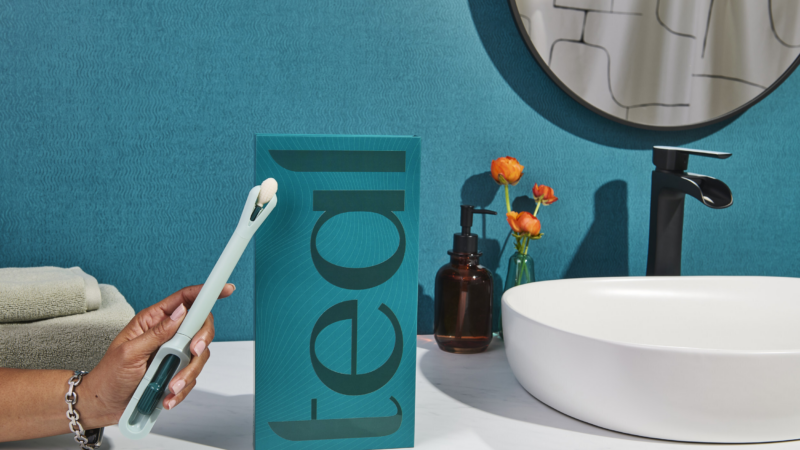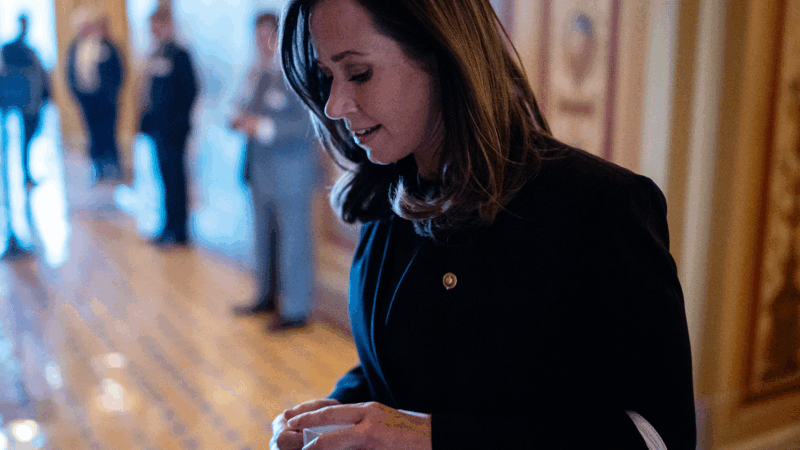The FDA approves first U.S. at-home tool as a Pap-smear alternative
The Food and Drug administration has approved the U.S.’s first at-home alternative to the Pap smear, a procedure generations of women have dreaded and often found painful.
The new device by Teal Health will offer a “much preferred experience,” the company said in its announcement, and also aims to increase screening rates by making the procedure more convenient.
Traditionally, gynecologists have inserted a cold metal speculum deep into a woman’s vagina to scrape cells from the cervix.
The Teal Wand — “built with empathy,” the company said — uses a swab to collect a vaginal sample. Women will then mail the sample to a lab that will screen for HPV (human papillomavirus), the virus that causes nearly all cervical cancers. A growing body of research has found HPV testing to be highly accurate.
The FDA approval Friday follows a U.S.-based study that found at-home screening was just as effective as that done in a doctor’s office. The study also found women overwhelmingly preferred self–screening at home, and said they’d be more likely to stay up to date with cervical cancer screenings that way.
Every year, about 13,000 cases of cervical cancer are diagnosed, and more than 4,000 women die from the disease. Rates are down dramatically since Dr. Georgios Papanicolaou published a 1943 paper on how to use the Pap smear for screening, and it then became common.
But about a quarter of women in the U.S. are behind on such screenings, and medical experts say reducing that is key to the ultimate goal of eliminating cervical cancer. There’s also a racial gap, with Black and Native American women far more likely to die from cervical cancer than white women. The HPV vaccine for teen and preteen girls, introduced in 2007, has also led to a global push to tackle the disease that way.
At-home cervical cancer screenings are already available in several other countries, including Australia and Sweden.
Teal Health says its self-testing device will be available starting next month, in California first and then expanding. It will be by prescription, through a telehealth service, for women 25-65 years old who are “at average risk.” The company says it’s working with insurance companies to provide coverage.
Bill making the Public Service Commission an appointed board is dead for the session
Usually when discussing legislative action, the focus is on what's moving forward. But plenty of bills in a legislature stall or even die. Leaders in the Alabama legislature say a bill involving the Public Service Commission is dead for the session. We get details on that from Todd Stacy, host of Capitol Journal on Alabama Public Television.
My doctor keeps focusing on my weight. What other health metrics matter more?
Our Real Talk with a Doc columnist explains how to push back if your doctor's obsessed with weight loss. And what other health metrics matter more instead.
Baz Luhrmann will make you fall in love with Elvis Presley
The new movie is made up of footage originally shot in the early 1970s, which Luhrmann found in storage in a Kansas salt mine.
Forget the State of the Union. What’s the state of your quiz score?
What's the state of your union, quiz-wise? Find out!
SNL mocked her as a ‘scary mom.’ In the Senate, Katie Britt is an emerging dealmaker
Sen. Katie Britt, Republican of Alabama, is a budding bipartisan dealmaker. Her latest assignment: helping negotiate changes to immigration enforcement tactics.
As the U.S. celebrates its 250th birthday, many Latinos question whether they belong
Many U.S.-born Latinos feel afraid and anxious amid the political rhetoric. Still, others wouldn't miss celebrating their country








